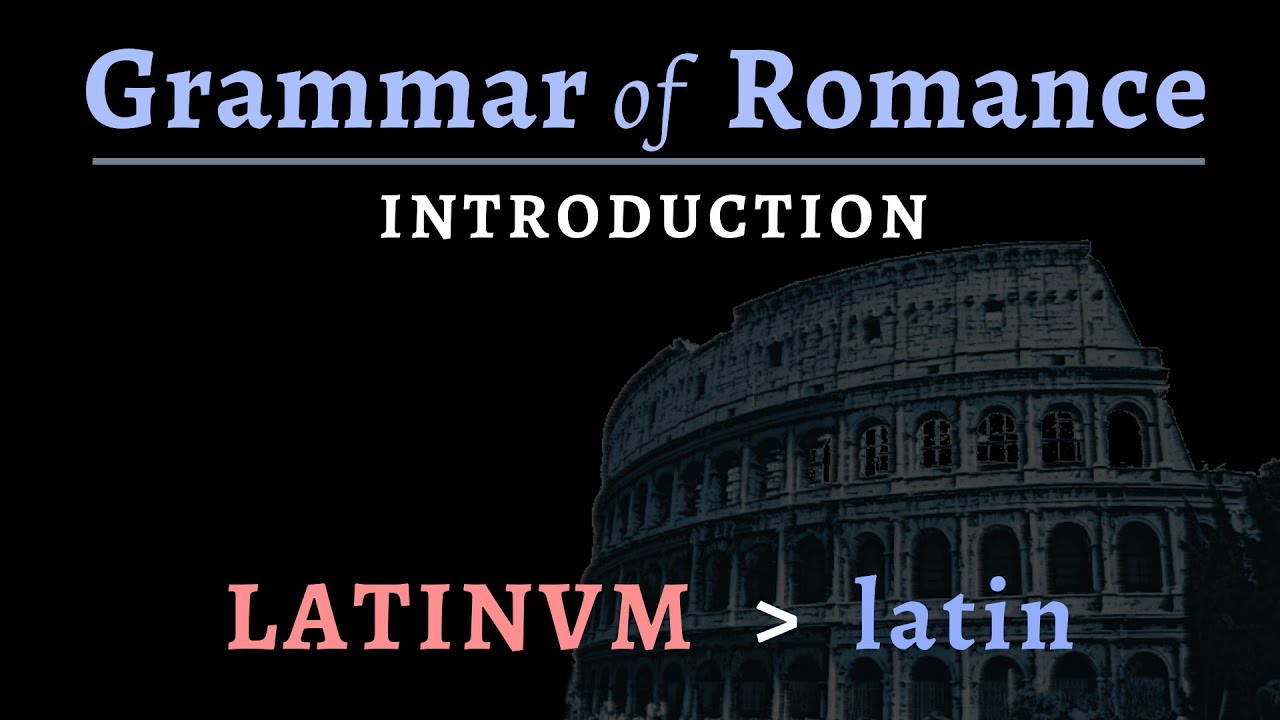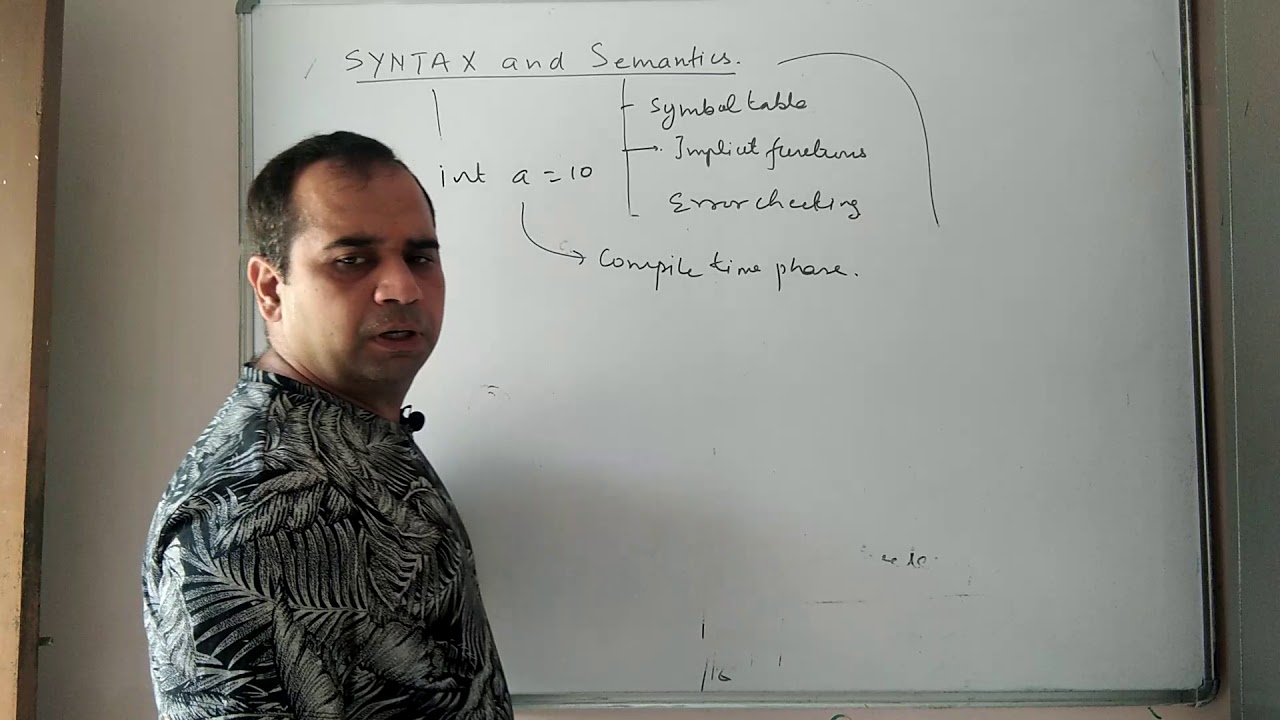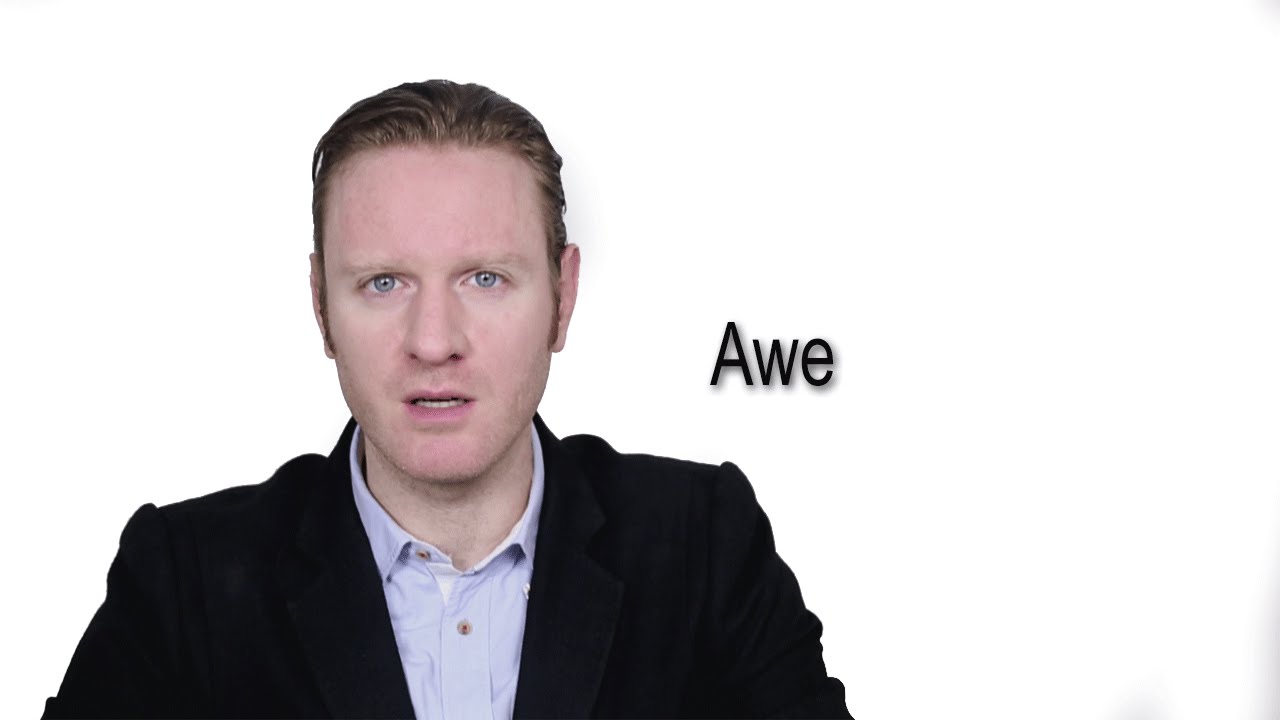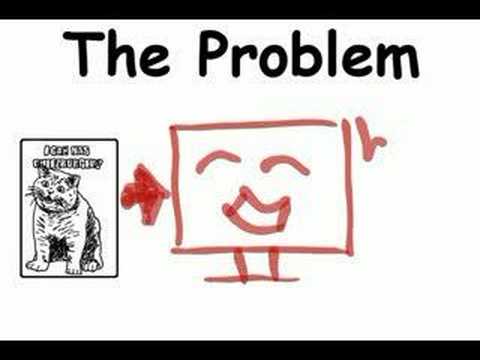NativLang
The first in a series of lessons introducing the basic grammar of the Romance languages. This video touches on the various languages and grammatical features that will be covered in the rest of this series.
Examples compare and contrast Vulgar Latin and the modern languages. Notes on formatting: the asterisk * introduces reconstructed words in Common Romance (a variety of Vulgar Latin). For example: *lingua, Spanish lengua, French langue, Romanian limbă ‘language’. Vulgar Latin words show up in light red, modern Romance words in light blue and translations in italics.
“The Grammar of Romance” has an associated website (free) and book ($). Both offer more explanations and examples:
http://www.nativlang.com/romance-languages/
http://www.amazon.com/gp/product/1475246633/ref=as_li_ss_tl?ie=UTF8&tag=nativlangu-20
In this video, I mention my previous lesson series on comparison, reconstruction & historical linguistics. Here is the URL:
http://www.nativlang.com/linguistics/historical-linguistics-lessons.php
MUSIC by Kevin MacLeod .(tagsToTranslate)Romance languages(t)Romance language(t)Romance grammar(t)Vulgar Latin(t)Late Latin(t)Romance languages grammar(t)comparative grammar(t)linguistics(t)historical linguistics(t)comparative linguistics




I stumble upon your videos by accident and I can't stop watching, they are intriguing, fascinating and informative. Thanks for the videos 🙂
What about Romansch the 4th official language of Switzerland.
Yes it is great that you include it. Not many people know about Romansh and the wikipedia pages shows the various dialects. In a few weeks I hope to visit two local schools to encourage 6th class to take up either Latin or Greek when they begin secondary school. I teach Latin as a extra-curricular subject after school. I do it voluntarily. I am a member of the Classical Association of Ireland and members were asked to help the Greek and Latin academy to try and make these languages available.
Yes it is great that you included it as not many people know about it. I hope to visit two local schools and encourage 6th class to take up Greek or Latin in first year. I want to show the 1st, 2nd and 3rd person singular of the verb to be in all the main Romance languages as well as Greek and Latin.I will also show the German. Polish and Irish as well to demonstrate how all these languages have a common form.
Ireland used to be good at foreign languages thanks to the nuns (French) and at Latin and Greek. Ireland is the European headquarters of Yahoo, Facebook,Twitter and Ebay. Early March the Irish Times stated that there were 1000 jobs for German speakers. Ireland is in a bad way and out young people are emigrating to Canada or in greater numbers to Australia. Also if they do any science subject Greek or Latin would be such a help.
Romanian was the second language to split from Latin after Sardinian and this happened in 7'th century ,not 800's.
And Romanians were in the whole Balkans not only in Dacia in Moesia before the invaders. This is a historical fact and the Slavic people from post-Yugoslavia should assimilated the remaining vlachs/morlachs in 20'th century …
This is a geographic and historical fact for example teritory of Kosovo was named câmpia mierlei initially and iancu de hubedoara fought with the Turks there
Muito obrigado!
When it comes to Romance, I learned Spanish and French when I was young. I started to study others when I was a little older.
The linguistic situation in Italy fascinates me, from Sicily to the Alps to Sardinia. Romance creoles, too. But It's hard to pick a favorite!
Most probably that old dacians were speaking vulgar latin…
Did Vicans Invent Writing Before The Sumerians And Egyptians? Cryptographer Translates Tărtăria Tabets
http://beforeitsnews.com/science-and-technology/2013/02/did-vicans-invent-writing-before-the-sumerians-and-egyptians-cryptographer-translates-tartaria-tabets-2548220.html
Hi! Do you have any videos on the history of Latin and the Romance Languages? Thanks!
I never thought that by learning another language such as French it would teach me about my history. But in fact it does and it makes me feel more connected to humanity when you learn WHY a word is the way it it is. Thank you very much for this documentary series on the romance languages and its evolution from (Vulgar) Latin
I was wondering, are you ever going to do videos like these for the Germanic (or even Slavic) languages?
Latin was a vulgar form of Daco-Getian language. Let's take an example: How on earth latin aqua become romanian apă to resemble with Sardinian aba, Pers. âb, Avestan ap or Skt. aapa?. The same for romanian limbă > latin lingua.
Come with a new serie, Germanic or Semitic languages, that'd great.
Would it possible to address numbers? Like how undecim became Spanish once, etc?
this is FUCKING AMAZING.
And Galician? Portuguese's sister?
Romanian language is very complex language. Is the most dificult Latin language to learn
This might not be that interesting, but I love how each of the different forms of the verb "to speak" are still used in spanish, but in different ways:
– "LOQVOR" resembles "locutor" (broadcaster, announcer).
– "Parabolo" resembles the verb "parlar", which isn't really used so much anymore (in instead the verb "hablar" is used). However, if you were to say something like "talking dog" you would say "perro parlante", not "perro hablante". "Parlante" is also used for loudspeakers.
– Finally, the word "Fabulo" sounds like "fabula", which means fable or tale. It also sounds like "hablo" (first person conjugation of "hablar"), and in Spanish class I learned that at some point in history some Spanish f's were turned into h's. I actually looked it up and "hablar" used to be "fablar". The same way, the word "hacer" (to do/make) kind of resembles french "faire" and italian "fare" once you realize that, and in fact, it used to be "facer" (facere in latin), or "fambre" (hambre) > faim, fame, fame, etc.
Arg! You use the haughty Spaniard pronunciation! 😛
It's FUNCSION! Not functhion!
Lol, just playing. As I understand, in classes they teach the original Castilian pronunciation of Spanish.
you should feasibly consider redoing this series. You have improved vastly in terms of quality.
Excellent pronunciation of Latin and its descendants. I am very satisfied.
you have forgotten these Romance languages that today are spoken…Romanche / Rumansch SardinesVenetoPiamontesSicilianoOccitanoGalego…some of them are dialects but all are spoken …
You should redo this series.
Peretty cool
Plovet sounds way too similar to the bulgarian poliva which means to water, it is also very similar to pluva – to swim and plava – to sail
What happened to the old hosts of the channel?
I had been watching your videos without realizing that you're also the author of "The Grammar of Romance", which I bought years ago and really enjoy!
Why do you keep mispronouncing Latin when you clearly know what it sounded like? It's like a nail striking a chalkboard every time I hear a "v" or "ch" sound.
2013 : Made the series of Vulgar Latin
2016 : Made the video "What Latin Sounds Like?"
LOL????
Latin didn't have articles. Why do you write Una lingua in latin?
Sicilian is a (admittedly very strong) dialect of Italian, not it's own language. Ladin however is and you didn't even mention it.
There is a theory that I think is more accurate claiming that Romance Languages don't come from Latin:
https://www.youtube.com/watch?v=YQ-TBOYC1tk
The hungarians and bulgarians who says that romanian is not a italic language they should suck a dick, then watch this video and suck a dick again!
I am very lucky…as a romanian i understand more than 60% of spanish,italian,french and portuques